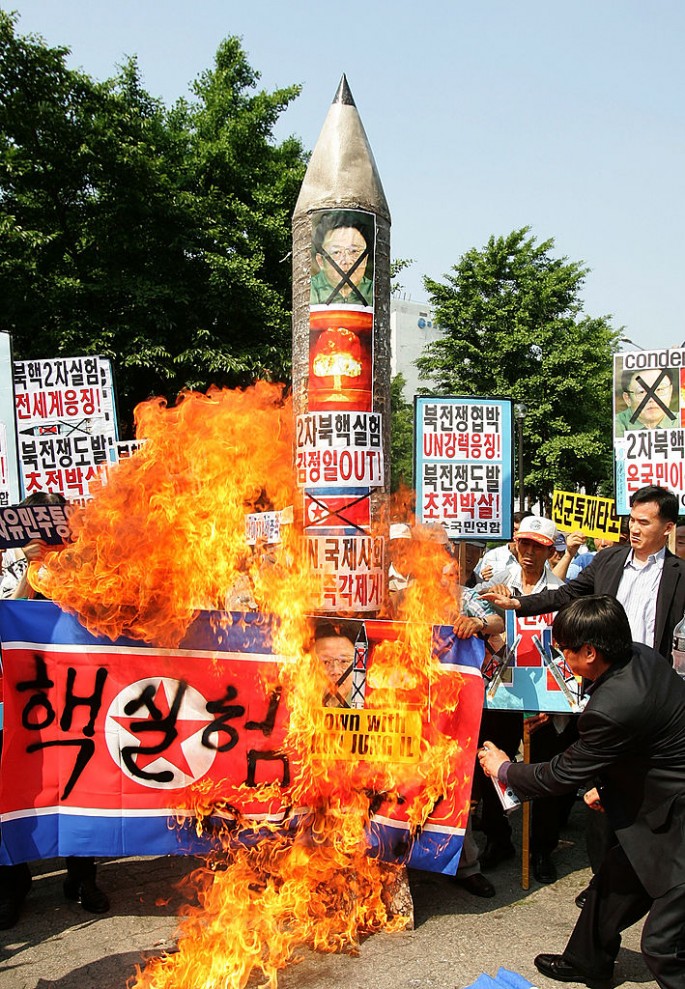North Korea apparently made good its threat to conduct a hydrogen bomb test on Wednesday. The test had a preliminary magnitude of 5.1 earthquake with an epicenter east northeast of Sungjibaegam.
The Washington Post reports that a TV anchor read a statement on state television confirming the testing of a miniaturized hydrogen bomb. It describes the test as a perfect success and would provide the communist regime a weapon to defend the country from the U.S.
If outside experts would confirm the test, it would likely lead to call for tougher sanctions at the UN and further worsen Pyongyang's relationship with Seoul and other neighbors.
Radiation from a nuclear fission explosion of a hydrogen bomb, which is harder to make but more powerful than an atomic bomb, sets off a fusion reaction that causes the powerful blast and radioactivity.
The Democratic People's Republic of Korea is believed to have as many as a dozen nuclear weapons and is developing more. CNN cites a recent U.S.-Korea Institute at SAIS report that by 2020, North Korea would have between 20 to 100 nuclear weapons that is capable of hitting the U.S., South Korea and Japan.
Jeffrey Lewis, director of the East Asia Nonproliferation Program at the James Martin Center for Nonproliferation Studies, points out that Pyongyang was known for using its willingness to trade nuclear weapons for better relations to legitimize the regime. However, Shane Smith, senior research fellow at the U.S. National Defense University, says that point of view seems "to be gone for the foreseeable future."
Under leader Kim Jong Un, North Korea had conducted two successful nuclear tests and would carry out a third test.
Victor Cha, Korea chair of the Center for Strategic and International Studies, says the test just made trivial the plutonium program that the U.S. and members of the Six-Party - made up of the U.S., China, South Korea, Japan, Russia and North Korea - talks have been negotiating the past 25 years.






















